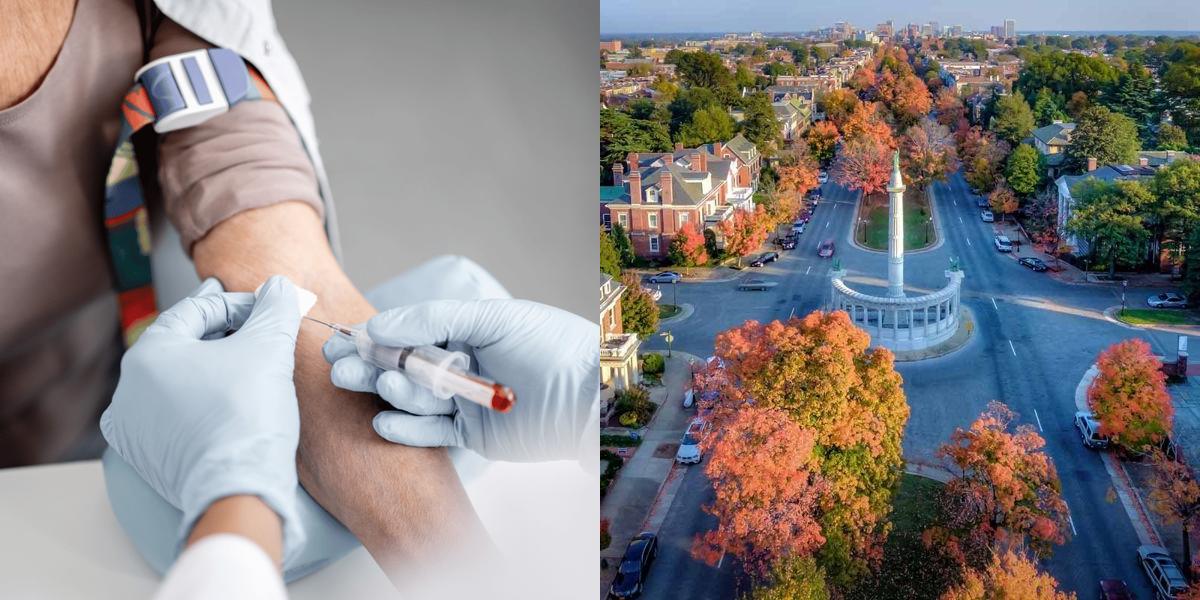How to Become a Phlebotomist in Virginia (2025)

If you're looking for a fast path into Virginia's growing healthcare field, becoming a Phlebotomist offers a direct route to a stable job drawing blood for tests and donations. The state employs over 4,800 of these essential professionals who earn a median salary of $40,800 per year, according to the U.S. Bureau of Labor Statistics. This guide provides the definitive 5-step process to navigate Virginia's training and certification requirements to launch your career in this vital role in just a few months.
5. Apply for Phlebotomy Jobs in Virginia
Once you’ve earned your certification, it’s time to start your phlebotomy career. Job opportunities are available across various healthcare settings, including hospitals, outpatient clinics, blood donation centers, and medical laboratories. To find the best openings, explore job boards, hospital career pages, and platforms like My Next Move for the latest listings.
For a comprehensive guide on becoming a phlebotomist in the U.S., check out our in-depth resource covering essential steps, certification requirements, job market insights, and salary trends by state. Whether you're just starting or looking to advance your career, this guide provides everything you need to succeed in the growing field of phlebotomy in Virginia.
Where to Find Phlebotomy Classes in Virginia?
If you’re looking for phlebotomy training programs in Virginia, Dreambound is the largest platform to help students find, compare, and enroll in vocational training programs.
- Find accredited phlebotomy classes near you
- Compare program costs, duration, and reviews
- Choose from in-person or online courses
Explore phlebotomy training programs in Richmond and more today!
How Long Does It Take to Become a Phlebotomist?
You can become a job-ready, certified Phlebotomist very quickly. Most training programs in Virginia take only 4 to 12 weeks to complete. After that, it usually takes a few weeks to schedule and pass your national certification exam.
What About Licensing in Virginia?
Virginia does not require a state-specific license for phlebotomists. The profession is unregulated at the state level. However, the job market is driven by national standards, and virtually all employers require you to have a national certification (like CPT) from a recognized agency to get hired.
Career Paths and Opportunities
A phlebotomy certification opens doors to various healthcare careers, including:
- Medical Laboratory Technician (MLT) – Specialize in lab diagnostics and testing.
- Blood Bank Technician – Work in donation centers and transfusion labs.
- Phlebotomy Instructor – Teach future phlebotomists.
- Nursing (LPN/RN) – Use phlebotomy skills as a stepping stone to nursing.
- Clinical Research Coordinator – Assist in medical research and drug trials.
Frequently Asked Questions
How long does it take to become a phlebotomist in Virginia?
Most phlebotomy programs take 4 to 8 months, depending on course length and clinical training.
Do you need certification to be a phlebotomist in Virginia?
No, Virginia does not require state certification, but most employers prefer certified phlebotomists.
How much does a certified phlebotomist make in Virginia?
The average salary for a phlebotomist in Virginia is $39,240 per year, according to the Bureau of Labor Statistics (BLS).
What is the shortest time to become a phlebotomist?
Some accelerated phlebotomy programs can be completed in as little as 4 months.
Final Thoughts
Becoming a phlebotomist in Virginia is a great entry point into the healthcare industry. With short training programs, high job demand, and career growth potential, phlebotomy is a rewarding career choice.
Start your journey today! Find the best phlebotomy training programs on Dreambound and take the first step toward a new career in healthcare.
Looking for a better fit? These other articles could be more in line with your expectations if this one isn't precisely what you had in mind:

Athena is Co-founder and CEO of Dreambound.



